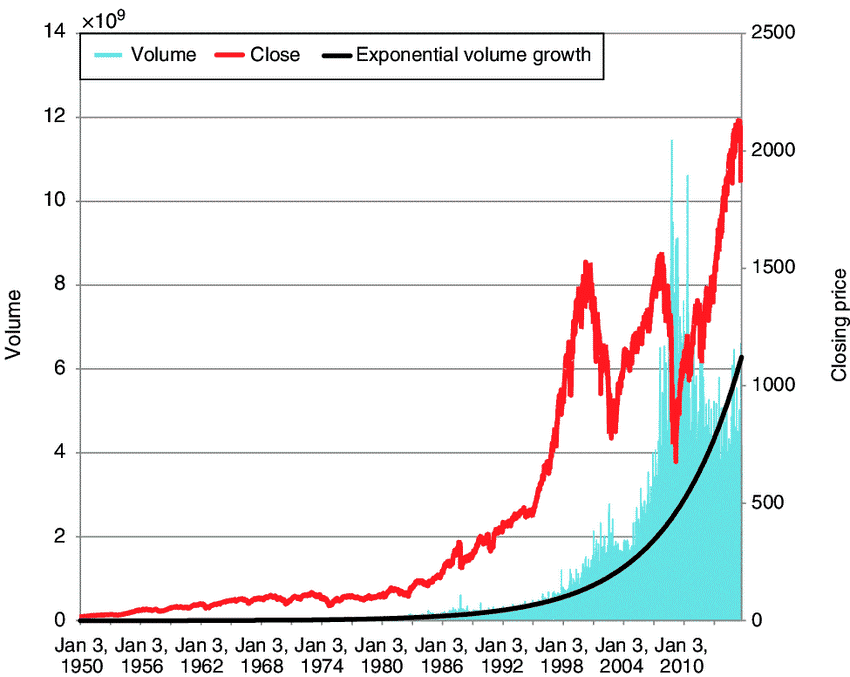
Quantum computing processing power could cut AI model training exponentially, and increase the speed of informed decision making dramatically.
Yelling, sweating, panic, exuberance all wrapped up in a blue contrast shirt and a tie. The trading exchanges in the 1980s represented the chaotic and rapidly growing space of equity trading as an avenue to reap profits from the performance of anything from orange juice to Raytheon. Flash forward just 30 years, and you’ll find that trading floor is now mostly used for show with investors monitoring screens powered by servers running high-frequency trading (HFT) algorithms in the background.
See also: Quantum Computing: Coming to a Platform Near You
Computers have revolutionized how we can trade and move capital. Transistors and core processing power has rapidly evolved over the past 15 years allowing greater amounts of data to be processed in shorter periods of time. With that came the dawn of HFT to make decisions using predictive modeling to create large gains despite small changes in the price of equities or commodities. HFT allows institutions to dramatically evolve the strategy and scale by which they operate in the normal course of the day. As such, the volume of trades can increase exponentially to accommodate a multitude of data that is constantly streaming and correlated:

Daily Closing Price and Trading Volume in the S&P 500 Index (Source: ResearchGate)
However, while the constant barrage of data from multitudes of sources allows investors to stem together corollaries from wildly different things, HFT is now reaching a point of influx for a few reasons:
- The amount of data being gathered is increasingly challenging to maintain, especially as it comes from different sources and may not have historical significance from which to backcheck.
- Binary data processing (1s and 0s) in traditional form has its limitations based on compute power, internet bandwidth, and energy requirements. You can only add so many transistors and cores.
- The speed at which decisions need to be made in real-time to keep up with larger market movers has compounded rapidly.
- The volatility of the existing models and market affects the predictive capabilities of the value of future assets, risk becomes progressively more inherent in portfolios.
Artificial Intelligence and Quantum Computing may have the answers. Let’s break it down:

IBM Quantum Computer ( Source: Engagdet)
Streaming, Storage, and Insights
Data that can influence trading is now streamed from news agencies, exchanges, legislature, and banks from across the world. The ability to congregate that into singular databases has been defined. Now the challenge is storage and insight-driven decision-making. How and where do we store relevant pieces of data that matter? What do we keep to give historical context?
Cloud computing provides the ability to store and correlate relevant pieces of data, and update at regular intervals based on new incoming data streams. Artificial intelligence provides that nice cherry on top – now you have a place to store data, what do you do with it? Technology like knowledge catalogs and cognitive search platforms would allow institutions and investors to define collections from which they can create connections and search based on context rather than just keywords. This is incredibly important as there are petabytes of data that are processed and transmitted through the public internet on a daily basis.
Additionally, by using natural language processing applications can produce insight on the sentiment and relevancy of streaming data to allow investors or the HFT to make more informed decisions. For example, an HFT algorithm trading coffee commodities augmented with a knowledge catalog and cognitive search platform could ingest data and correlate the significance of the Amazon rainforest fires in the news, the growing popularity of guanine as a substitute for caffeine as seen in email newsletters, and the performance of companies like Starbucks to derive a positive or negative sentiment to influence the trading decision. More importantly, it can then store the context of the trade and querying of collections to impact future trading decisions.
Processing Power and Speed
Let’s now assume that an insight-driven cognitive search platform is implemented. How would institutions then process more data and do it faster than the others so that the AI engine can process and help make decisions? Additionally, how can it be processed not just to influence the decisions made on a single piece of equity, but a whole portfolio? The more data that comes in, the longer it will take to process and produce meaningful results, and even advanced GPUs can only get you so far.
This is the beautiful promise of quantum computing: rather than processing binary data (bits -1s and 0s), quantum computers use quantum bits (qubits) to superimpose or entangle bits onto subatomic particles. Superposition then allows that particle to maintain multiple states of data at once – rather than a linear stream of 1s and 0s, you could maintain multiple combinations of that data onto a single particle. Through entanglement, these supercomputers are then able to link together pairs of qubits (instead of 0 or 1, you have 00, 10, 01, and 11 that all exist simultaneously) of a plethora of combinations of data to create steady streams of correlation and allows the receiving quantum computer to process that incoming data at an extraordinary rate. To give further context:

Source: ArsTechnica
This processing power could enable immensely rapid transmission of data, cut down on AI model training exponentially, and increase the speed of informed decision making dramatically. Additionally, with this ability to solve optimization challenges at an increased rate, HFT would be able to make on-the-fly portfolio adjustments to maximize cash flow while minimizing risk.
While quantum computing is still in its nascent stages – it still is very difficult to superimpose particles with data and store quantum computers effectively (and they are not commercially available) – it presents a glorious solution to allow the investor, with the power of additional artificial intelligence capabilities to allow computers to do the heavy lifting and focus attention to different challenges such as relationship management, informed asset management, and optimizing brokerage of various trades.




























